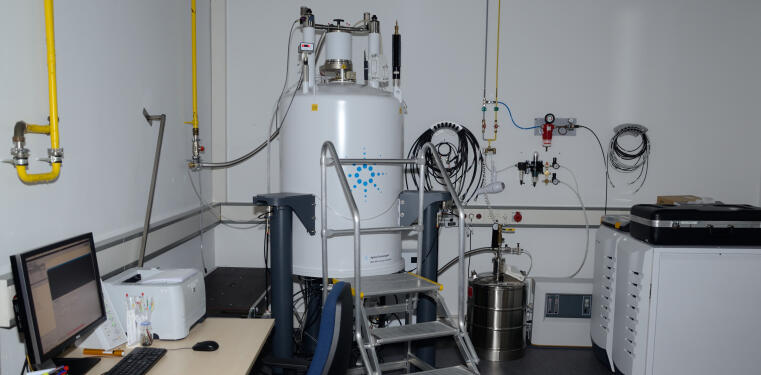

The NMR Laboratory of Organic Chemistry
is equipped with several NMR spectrometers working between 300 and 600 MHz and is part of the NMR core facility of the University Münster.
The group offers a complete NMR service for the ongoing research needs of each scientist in the institute, but is also engaged in providing solutions to the structural questions posed by other faculties and research networks inside the university (e.g. SFB 858 or SFB 1459). Beyond that, the NMR department supports the research work of the Universitätsklinikum Münster (EIMI) by acquiring all NMR spectra for the radiology and nuclear medicine departments.
The high field of the Agilent DD2 600 and its associated equipment, including four channels and several probes, offers most of the advanced NMR-techniques (e.g. special triple resonance experiments like 1H, 19F-X or 1H, 13C-X). Secondly, a DD2 500 spectrometer from Agilent is equipped to measure multiple experiments on different nuclei with high sensitivity. Furthermore, these spectrometers can be used for a variety of mechanistic, kinetic and dynamic studies, and as such, we regularly acquire NMR spectra at low and high temperatures.
For high troughput and a wide range of NMR experiments three Bruker NEO 400 NMR spectrometers with BBFO iProbes and sample changers are used. One of these spectrometers is used in open access mode and is available for all coworkers of the Institute of Organic Chemistry. Processing of the NMR data is readily achieved through the use of MNova software, which is available for use by university members.
